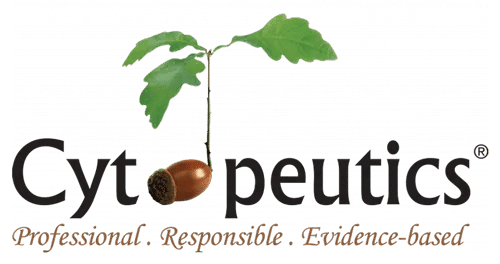Target- |
MechanismStem cell replacements |
|
|
|
Inactive Indication- |
Drug Highest PhasePhase 2/3 |
First Approval Ctry. / Loc.- |
First Approval Date- |
Cytopeutics® A Phase II-III Double-Blind Randomized Controlled Study to Assess the Efficacy of Umbilical Cord Mesenchymal Stem Cells (Neuroncell-EX) Transplantation in Patients With Acute Ischemic Stroke
The primary objective of this study is to evaluate the functional recovery based on Barthel index (BI) and modified Rankin Scale (mRS) while the secondary objectives are to assess the survival and re-admission rate as well as to investigate the inflammatory response in a subclinical study within 1 year of Neuroncell-EX infusion in participants with acute ischemic stroke.
Phase IIb Study Assessing the Efficacy of Allogeneic Umbilical Cord Mesenchymal Stem Cells for Knee Cartilage Injury
In terms of the surgical treatment of the cartilage injury, various techniques and ways are created to repair or regenerate articular surface of synovial joint following traumatic damage or degeneration of the cartilage. The option for surgical treatments based on the size and depth of the cartilage knee injury may include knee debridement, radiofrequency, drilling, microfracture, mosaicplasty, allogenic osteochondral transplantation and autologous chondrocyte transplantation. The first two techniques mentioned have been used in treating the cartilage knee injury involving the partial defects meanwhile the latter techniques have been used for Grade III and IV cartilage defects based on ICRS. However, most of the surgical options up only provide more of Type I collagen rather than Type II collagen. The available treatments are more symptomatic rather than preventive or regenerative. Stem cell has big potential in this area where it has ability to differentiate to cartilage. As allogeneic umbilical cord blood MSCs are readily available and can be administered immediately, this study therefore aims to prove the efficacy of allogeneic umbilical cord-derived mesenchymal stem cells (UC-MSCs) for treating large defects knee injury.
The study is a prospective, randomized controlled, open label, phase IIb clinical trial, involving 50 patients with large defects of cartilage injury for follow-up duration of 24 months. Patients will be assigned into 2 arms; Arm A - 25 subjects will receive Chondrocell-EX (UC-MSCs) and Arm B - 25 subject will receive marrow cellution. All patients will undergo debridement prior to receiving their assigned treatment. The patients will be assessed on KOOS, IKDC, VAS and MRI.
/ Active, not recruitingPhase 1/2 Cytopeutics® Umbilical Cord Mesenchymal Stem Cells (Cyto-MSC) for Patients With Grade II -IV Acute Graft-Versus-Host Disease: A Phase I/II Clinical Study
Background: Graft-versus-host disease (GVHD) is a devastating complication following allogeneic hematopoietic stem cell transplantation (HSCT) mediated by stimulation of antigen presenting cells (APCs) which leads to donor T-lymphocytes activation and target tissue destruction, particularly affecting the skin, gastrointestinal tract, and liver in acute setting. In recent years, researchers have discovered that the application of mesenchymal stromal cells (MSCs) as salvage treatment among steroid refractory GVHD patients improves outcomes without long-term risk association. On the other hand, the use of MSCs concurrently with steroids as front-line treatment for acute GVHD has yet to be researched on. The investigators hypothesize that this approach, as the MSCs will be administered at earlier stage of the disease, will increase survival rate and reduce mortality among aGVHD patients.
Objective: In this study, the investigators aim to determine the efficacy and safety of allogeneic infusion of Cytopeutics® umbilical cord-derived mesenchymal stromal cells (Cyto-MSC) in combination of standard corticosteroid therapy as front-line approach for treatment of grade II-IV acute GVHD patients.
Study design: This is a phase I/II clinical study involving patients who underwent an allogeneic HSCT for malignant or non malignant haematological disorders and developed grade II-IV acute GVHD. A total of 40 eligible patients will be recruited in this study.
For Phase I open labelled study, 5 eligible patients will be recruited to receive Cyto-MSC (5 million UC-MSCs per kg bodyweight) and standard treatment. Meanwhile, for Phase II double blinded placebo controlled study, another 35 eligible patients will be recruited and randomized into 2 study groups where 15 patients will be assigned into Group A to receive Cyto-MSC (5 million UCMSCs per kg bodyweight) and standard treatment, meanwhile another 20 patients will be assigned into Group B to receive Placebo and standard treatment.
Cyto-MSC or Placebo will be administered at Day 1 and Day 4. Another infusion of Cyto-MSC or Placebo will be given at Day 7 if the patient shows no or partial response based on GvHD grading criteria. All patients will be assessed up until 6 months follow-up which include medical history, clinical and physical evaluations, pathology investigations, biomarkers and immune cell subsets analysis, as well as quality of life questionnaires.
100 Clinical Results associated with Cytopeutics Sdn Bhd.
0 Patents (Medical) associated with Cytopeutics Sdn Bhd.
100 Deals associated with Cytopeutics Sdn Bhd.
100 Translational Medicine associated with Cytopeutics Sdn Bhd.







